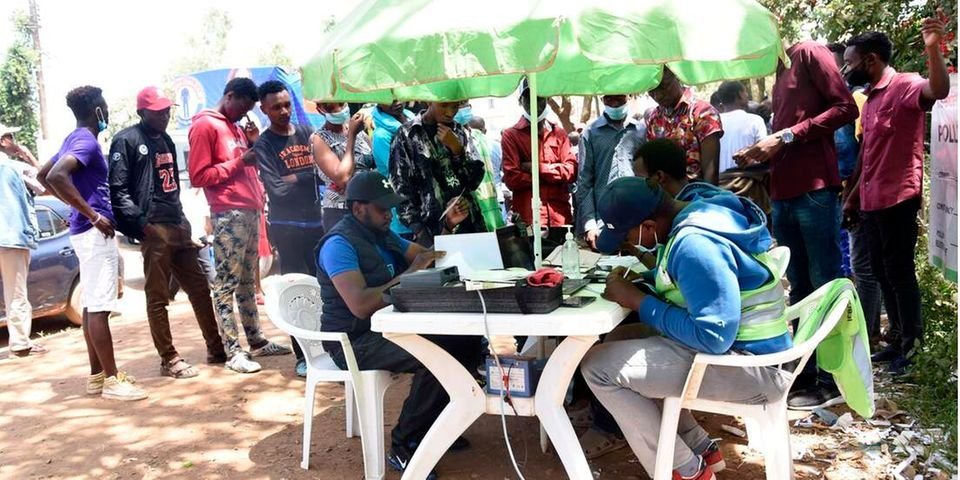 By Makau Mutua
By Makau MutuaProfessor at SUNY Buffalo Law School and Chair of the KHRC.
What you need to know:
A state can’t be better than its people and their leaders.
It’s never happened anywhere in the world, and Kenya is no exception.
During every presidential election cycle, pundits refer to the historical moment at hand. To hear them tell it, you’d think every presidential contest has historic – epochal – significance. That’s rarely the case. It’s akin to the story of the boy who always cried wolf without cause only to be in serious trouble when a real wolf actually waylaid him.
However, the August 9, 2022 Kenyan elections are truly epochal. Really. Kenya today stands at an inflection point. The country has lost confidence in itself. The populace is not at ease. The legitimacy of institutions is in doubt. It’s an era of discontent. Everyone is on a short fuse. The conspiracy of nature and man have made this a reset moment. States are only as good – or bad – as the people in them, and those who run them. A state can’t be better than its people and their leaders. It’s never happened anywhere in the world, and Kenya is no exception.
The character of a people is the crucible in which the nature of the state is forged. I am aware that the state is an instrumentality, an ogre, bent on the metaphorical consumption of humans. In other words, the state is naturally a controlling, repressive and jealous husband of its citizens and inhabitants. It wants to see – and know – everything. But it’s also a cultural and moral phenomenon. These two – culture and morality – determine the nature of the state.
Culture and morality
Culture and morality shouldn’t be understood as artefacts that exist in the museum of antiquities. They are dynamic and in constant evolution. They’ve a genetic fingerprint that distinguishes one culture, or moral structure, from another. You notice these stark differences when you travel from one country, or state, to another. Or even one region of the same country to another. Often, culture and morality seem intangible, but they aren’t. They are thick, and you can almost cut them with a machete.
Two particular cultures have been very critical for Kenya. The first is about political governance. The second is about ideological conviction. The two work together to produce the moral structures of the state and society. Let’s unpack them.
At independence, the state got off on the wrong foot. Rather than forging a united nation, our early leaders disagreed on the nature of political governance and ideological convictions that would anchor the emergent state. They put personal greed over the national interest. They put their ethno-cultural nations ahead of the idea of a Kenyan nation. As a consequence, the Kenyan nation has been stillborn – barely stirring in its crib. Often, we’ve almost choked the baby to death, as we did after the 2007 elections.
Later leaders were mainly the ideological children of the worst proclivities of our political forebears. And even when we make the right turn, we often find a way to end up in the ditch.
Ideological convictions
Our three single most important flaws are corruption, the tendency towards fascism and lack of public shame. Today, the corrupt and those who loot from Kenyans – the taxpayer and the littlest among us – are our heroes. They steal our future and give us offensive handouts that we fight over at political rallies without any concept of dignity. They keep us poor so that they can dominate us. They have found the political wand for domination – impoverish the people, make them desperate from disease, hunger and ignorance. Then colonise them through the police state. Even when you send Kenyans to school, the system makes sure they are undereducated. Graduates can’t string together two coherent sentences, let alone write a page.
We are a broken people. The state and our rulers have broken us. Then we have empowered them to continue breaking us. We’ve lost faith in each other and the state. Even the animals in Maasai Mara treat each other better because they don’t harm each other for gratuitous pleasure. They do so only in self-defence, or for dinner.
We destroy each other deliberately. We don’t understand that the welfare of one is the welfare of all. And that if one is harmed, then the whole is harmed. We need to reengineer our morality and culture – deliberately. This must start at home, our local communities and schools. We must recover – reclaim – our souls as individuals and as a state.
On August 9, 2022, we must choose leaders who have proven – in their public and personal lives – that they are not thieves and looters. We must choose leaders who can prove how they acquired what they own. We must choose leaders who understand how we can reset the moral structure, political culture, and ideological convictions of our people and the state. We must choose leaders who’ve proven they can love others, not just themselves. Leaders who will reset the foundations of our state and society. But to do so, we must – each and every one of us – reset our own moral and political codes and structures.
Makau Mutua is SUNY Distinguished Professor and Margaret W. Wong Professor at Buffalo Law School. He’s Chair of KHRC. @makaumutua.
Source:Daily Nation and consent of Bro, Makau Mutua.



No comments:
Post a Comment